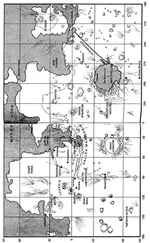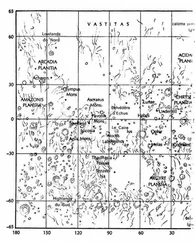Kim Robinson - Blue Mars
Здесь есть возможность читать онлайн «Kim Robinson - Blue Mars» — ознакомительный отрывок электронной книги совершенно бесплатно, а после прочтения отрывка купить полную версию. В некоторых случаях можно слушать аудио, скачать через торрент в формате fb2 и присутствует краткое содержание. Год выпуска: 1996, ISBN: 1996, Издательство: Spectra/Bantam Dell/Random House, Жанр: Космическая фантастика, на английском языке. Описание произведения, (предисловие) а так же отзывы посетителей доступны на портале библиотеки ЛибКат.
- Название:Blue Mars
- Автор:
- Издательство:Spectra/Bantam Dell/Random House
- Жанр:
- Год:1996
- ISBN:0-553-10144-7
- Рейтинг книги:3 / 5. Голосов: 1
-
Избранное:Добавить в избранное
- Отзывы:
-
Ваша оценка:
- 60
- 1
- 2
- 3
- 4
- 5
Blue Mars: краткое содержание, описание и аннотация
Предлагаем к чтению аннотацию, описание, краткое содержание или предисловие (зависит от того, что написал сам автор книги «Blue Mars»). Если вы не нашли необходимую информацию о книге — напишите в комментариях, мы постараемся отыскать её.
Green Mars
The Martian Chronicles
Dune
Piblishers Weekly st
Blue Mars — читать онлайн ознакомительный отрывок
Ниже представлен текст книги, разбитый по страницам. Система сохранения места последней прочитанной страницы, позволяет с удобством читать онлайн бесплатно книгу «Blue Mars», без необходимости каждый раз заново искать на чём Вы остановились. Поставьте закладку, и сможете в любой момент перейти на страницу, на которой закончили чтение.
Интервал:
Закладка:
Michel, however, was continuing to elaborate. Correlated to patriarchy was capitalism, he was saying, a hierarchical system in which most men had been exploited economically, also treated like animals, poisoned, betrayed, shoved around, shot. And even in the best of circumstances under constant threat of being tossed aside, out of a job, poor, unable to provide for loved dependents, hungry, humiliated. Some trapped in this unfortunate system took out their rage at their plight on whomever they could, even if that turned out to be their loved ones, the people most likely to give them comfort. It was illogical, and even stupid. Brutal and stupid. Yes. Michel shrugged; he didn’t like where this train of reasoning had led him. It sounded to Sax like the implication was that many men’s actions indicated that they were, alas, fairly stupid. And the limbic array got all twisted in some minds, Michel was going on, trying to veer away from that, to make a decent explanation. Adrenaline and testosterone were always pushing for a fight-or-flight response, and in some dismal situations a satisfaction circuit got established in the get hurt/hurt back axis, and then the men involved were lost, not only to fellow feeling but to rational self-interest. Sick, in fact.
Sax felt a litle sick himself. Michel had explained away male evil in several different ways in no more than a quarter of an hour, and still the men of Earth had a lot to answer for. Marsmen were different. Although there had been torturers in Kasei Vallis, as he well knew. But they had been settlers from Earth. Sick. Yes, he felt sick. The young natives were not like that, were they? A Marsman who hit a woman or molested a child would be ostracized, excoriated, perhaps beaten up, he would lose his home, he would be exiled to the asteroids and never allowed back. Wouldn’t he?
Something to look into.
Now he thought again of Ann. Of how she was: her manner, so obdurate; her focus on science, on rock. A kind of Apollonian response, perhaps. Concentration on the abstract, denial of the body and therefore of all its pain. Perhaps.
“What would help Ann now, do you think?” Sax said.
Michel shrugged again. “I have wondered that for years. I think Mars has helped her. I think Simon helped her, and Peter. But they have all been at some kind of distance. They don’t change that fundamental no in her.”
“But she — she loves all this,” Sax said, waving at the caldera. “She truly does.” He thought over Michel’s analysis. “It’s not just a no. There’s a yes in there as well. A love of Mars.”
“But if you love stones and not people,” Michel said, “it’s somehow a little … unbalanced? Or displaced? Ann is a great mind, you know — ”
“I know — ”
“ — and she has achieved a great deal. But she does not seem content with it.”
“She doesn’t like what’s happening to her world.”
“No. But is that what she truly dislikes? Or dislikes the most? I’m not so sure. It seems displaced to me, again. Both the love and the hate.”
Sax shook his head. Astounding, really, that Michel could consider psychology any kind of science at all. So much of it consisted of throwing together. Of thinking of the mind as a steam engine, the mechanical analogy most ready to hand during the birth of modern psychology. People had always done that when they thought about the mind: clockwork for Descartes, geological changes for the early Victorians, computers or holography for the twentieth century, AIs for the twenty-first… and for the Freudian traditionalists, steam engines. Application of heat, pressure buildup, pressure displacement, venting, all shifted into repression, sublimation, the return of the repressed. Sax thought it unlikely steam engines were an adequate model for the human mind. The mind was more like — what? — an ecology — a fell-field — or else a jungle, populated by all manner of strange beasts. Or a universe, filled with stars and quasars and black holes. Well — a bit grandiose, that — really it was more like a complex collection of synapses and axons, chemical energies surging hither and yon, like weather in an atmosphere. That was better — weather — storm fronts of thought, high-pressure zones, low-pressure cells, hurricanes — the jet streams of biological desires, always making their swift powerful rounds … life in the wind. Well. Throwing together. In fact the mind was poorly understood.
“What are you thinking?” Michel asked.
“Sometimes I worry,” Sax admitted, “about the theoretical basis of these diagnoses of yours.”
“Oh no, they are very well supported empirically, they are very precise, very accurate.”
“Both precise and accurate?”
“Well, what, they’re the same, no?”
“No. In estimates of a value, accuracy means how far away you are from the true value. Precision refers to the window size of the estimate. A hundred plus or minus fifty isn’t very precise. But if your estimate is a hundred plus or minus fifty, and the true value is a hundred and one, it’s quite accurate, while still being not very precise. Often true values aren’t really determinable, of course.”
Michel had a curious expression on his face. “You’re a very accurate person, Sax.”
“It’s just statistics,” Sax said defensively. “Every once in a while language allows you to say things precisely.”
“And accurately.”
“Sometimes.”
They looked down into the country of the caldera.
“I want to help her,” Sax said.
Michel nodded. “You said that. I said I didn’t know how. For her, you are the terraforming. If you are to help her, then terraforming has to help her. Do you think you can find a way that terraforming helps her?”
Sax thought about it for a while. “It could get her outdoors. Outdoors without helmets, eventually without even masks.”
“You think she wants that?”
“I think everyone wants that, at some level. In the cerebellum. The animal, you know. It feels right.”
“I don’t know if Ann is very well attuned to her animal feelings.”
Sax considered it.
Then the whole landscape darkened.
They looked up. The sun was black. Stars shone in the sky around it. There was a faint glow around the black disk, perhaps the sun’s corona.
Then a sudden crescent of fire forced them to look away. That was the corona; what they had seen before had probably been the lit exosphere.
The darkened landscape lightened again, as the artificial eclipse came to an end. But the whole sun that returned was distinctly smaller than what had shone just moments before. The old bronze button of the Martian sun! It was like a friend come back for a visit. The world was dimmer, all the colors of the caldera one shade darker, as if invisible clouds obscured the sunlight. A very familiar sight, in fact — Mars’s natural light, shining on them again for the first time in twenty-eight years.
“I hope Ann saw that,” Sax said. He felt chilled, although he knew there had not been enough time for the air to have cooled, and he was suited up in any case. But there would be a chill. He thought grimly of the fellfields scattered all over the planet, up at the four– or five-kilometer elevation, and lower in the mid and high latitudes. Up at the edge of the possible, whole ecosystems would now start dying. Twenty percent drop in insolation: it was worse than any Terran ice age, more like the darkness after the great extinction events — the KT event, the Ordovician; the Devonian, or the worst one of all, the Permian event 250 million years ago, which killed up to ninety-five percent of all the species alive at the time. Punctuated equilibrium; and very few species survived the punctuations. The ones that did were tough, or just lucky.
Читать дальшеИнтервал:
Закладка:
Похожие книги на «Blue Mars»
Представляем Вашему вниманию похожие книги на «Blue Mars» списком для выбора. Мы отобрали схожую по названию и смыслу литературу в надежде предоставить читателям больше вариантов отыскать новые, интересные, ещё непрочитанные произведения.
Обсуждение, отзывы о книге «Blue Mars» и просто собственные мнения читателей. Оставьте ваши комментарии, напишите, что Вы думаете о произведении, его смысле или главных героях. Укажите что конкретно понравилось, а что нет, и почему Вы так считаете.












